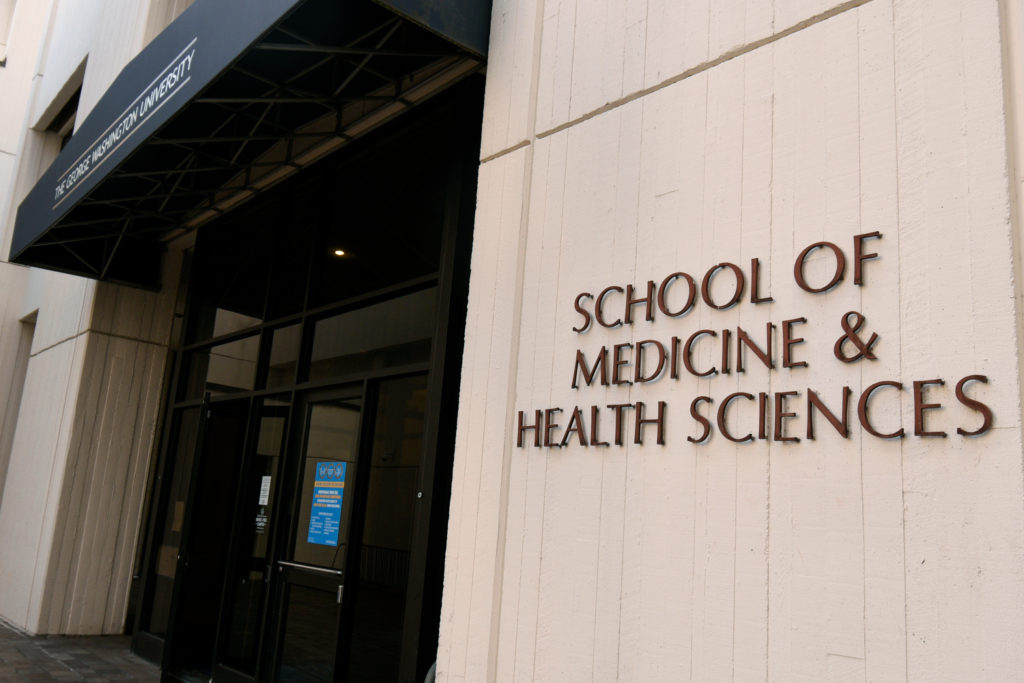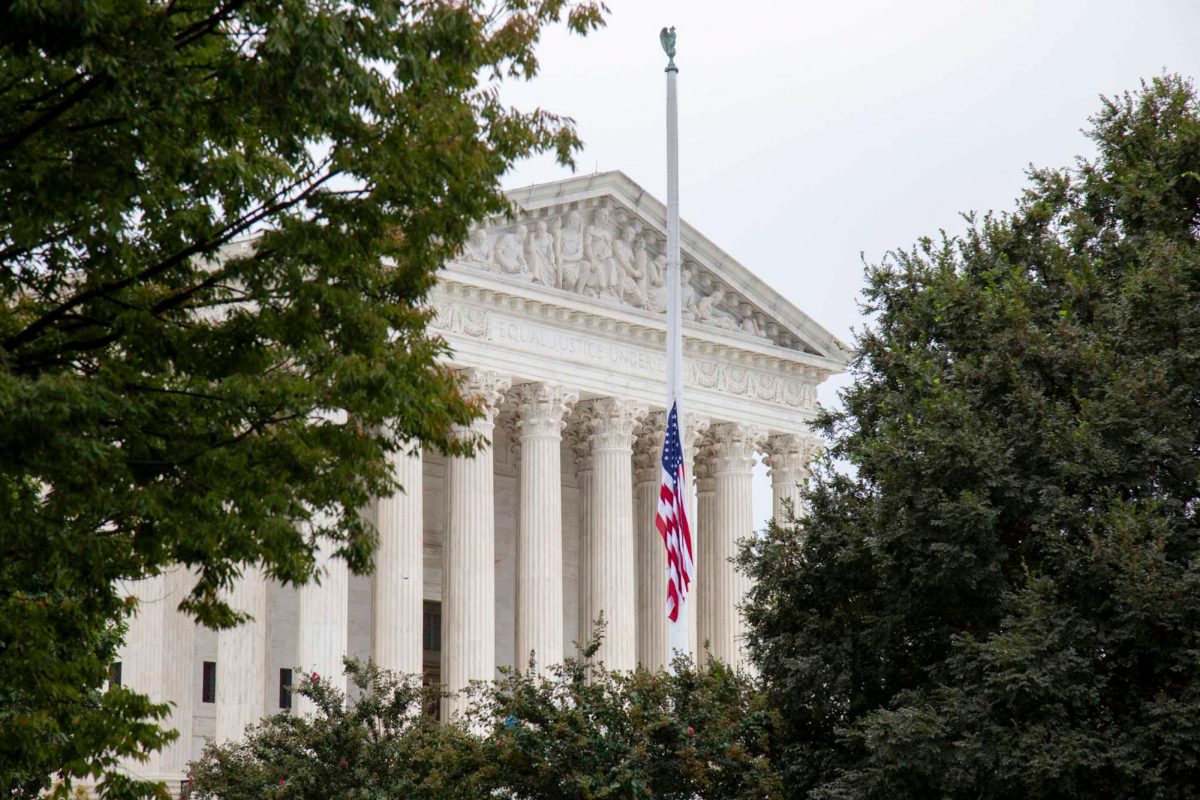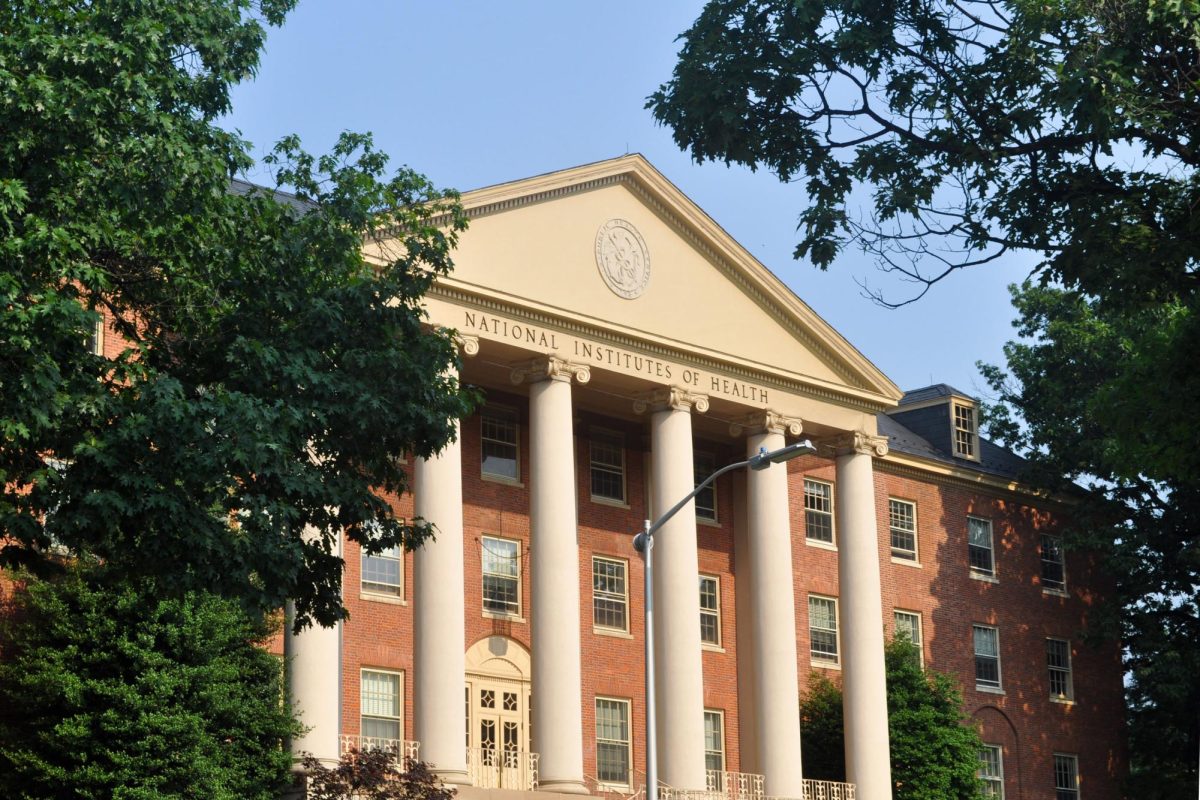Two professors of medicine have helped treat about 100 COVID-19 patients at a clinic in the Medical Faculty Associates to help those with symptoms lingering months after their initial infection.
The heads of the COVID-19 Recovery Clinic, which began operations in October, said they’ve found patients with initially mild cases of COVID-19 typically have had the most severe long-term symptoms. Hana Akselrod, the co-director of the clinic and an assistant professor of medicine, said she has seen patients with long-term effects ranging from cardiac damage and pneumonia to lung scarring and cognitive issues.
“What I think is a lesson learned over all this experience is there’s no single long-COVID patient or single long-COVID experience,” Akselrod said. “We see people who were hospitalized and had, some of them, critical care ICU stays or really long hospital stays, and we see people who were never hospitalized and never needed oxygen.”
Akselrod said patients typically fill out an extensive questionnaire upon arrival at the clinic, specifically designed for those with lingering COVID-19 symptoms, asking about their past medical history and their experience with the virus. She said the patients then have a 30-minute session with a physician where they discuss the symptoms they’re experiencing.
Patients are referred to the appropriate specialists with expertise in more narrow medical fields like neurology or cardiology, she added.
Akselrod said staff has put “deliberate thought” into making the clinic more equitable because the majority of patients are more socioeconomically privileged. She said the clinic has hired full-time administrative support in the last month and has also applied for grant funding to help with patient navigation, social work and reducing barriers to health care access.
Akselrod said she is worried that people of color, those with underlying medical conditions and those who are most affected economically by social determinants of health can’t get into clinics due to the high costs of medical care.
“We need to be thoughtful about who we prioritize and how we help patients from the communities that are disproportionately hit by COVID,” Akselrod said.
Akselrod said members of the clinic have worked with four other long COVID-19 clinics to create hypotheses about what kind of “patterns of disease” occur in those types of patients. She said their hypotheses suggest long COVID-19 can affect the lungs, heart and immune system.
She said the clinic is housed at an academic medical institution, so it also has to collect new data and offer opportunities for research. She said many patients have donated blood samples and nasal swabs for the clinic to store and share with other researchers studying the immune system’s reaction to the virus.
Akselrod said an advisory group of physicians and researchers help members identify “strong projects” for the clinic to share samples. She said this process connects researchers with patients who are interested in contributing to medical studies.
“The idea is that by connecting patients who want to donate their blood to research with researchers who are trying to understand how the immune system reacts to COVID and why it does so differently in different people, we can be that bridge,” Akselrod said.
Akselrod said the clinic’s membership consists of three co-directors, three adult general internists and about five residents who work at the clinic based on their availability. While members spend their evenings helping treat the patients at the clinic, Akselrod said she hopes the clinic will expand to offer more daytime hours in the future.
Aileen Chang, the co-director of the clinic and an assistant professor of medicine, said the most common symptoms she’s observed in patients who receive treatment at the clinic include fatigue, brain fog and increased heart rate. She said patients have experienced symptoms for anywhere from three months to one year.
“Frankly, it breaks my heart,” Chang said in an email. “We have so many very debilitated young and older patients whose lives have been crippled by this chronic disease such that they can’t work or take care of their families.”
Patients from around the country who experience lingering COVID-19 symptoms have reported respiratory issues, nausea and discolored extremities. Preliminary research has shown patients’ remaining symptoms tend to recede after they receive the COVID-19 vaccine.
Chang added that many patients have expressed gratitude to the clinic for providing individualized treatment while their primary health care providers have struggled to treat their long-term symptoms.
“Little is known about how to treat long COVID, so many patients have encountered health care systems that don’t know what to do with them,” she said. “This is why we have tried to create a medical home to provide patient-centered care to guide their recovery.”
Melissa Hawkins, the director of the Public Health Scholars Program at American University, said long COVID-19 is becoming “increasingly recognized” as more individuals share their experiences. She said the medical community failed to fully attend to long COVID-19 after the start of the pandemic last year due to the magnitude of patients with positive tests.
“It’s being taken much more seriously,” Hawkins said. “Some of the problems initially were just everyone trying to keep their head above water, particularly health care providers, so being really at capacity with handling patients who were coming in, for the first time, ill and diagnosing and treating them.”
Hawkins also said some people thought they had the virus but did not get tested because they did not have access to a test. She said those people may face certain obstacles in getting treatment if they are experiencing long COVID-19 now.
“Those individuals fall into a particularly challenging category where there isn’t a diagnosis on record,” Hawkins said. “Yet, they have these symptoms that are consistent and often really debilitating and not being able to get the care and the support and the treatment that they need, because they never had that initial diagnosis.”








